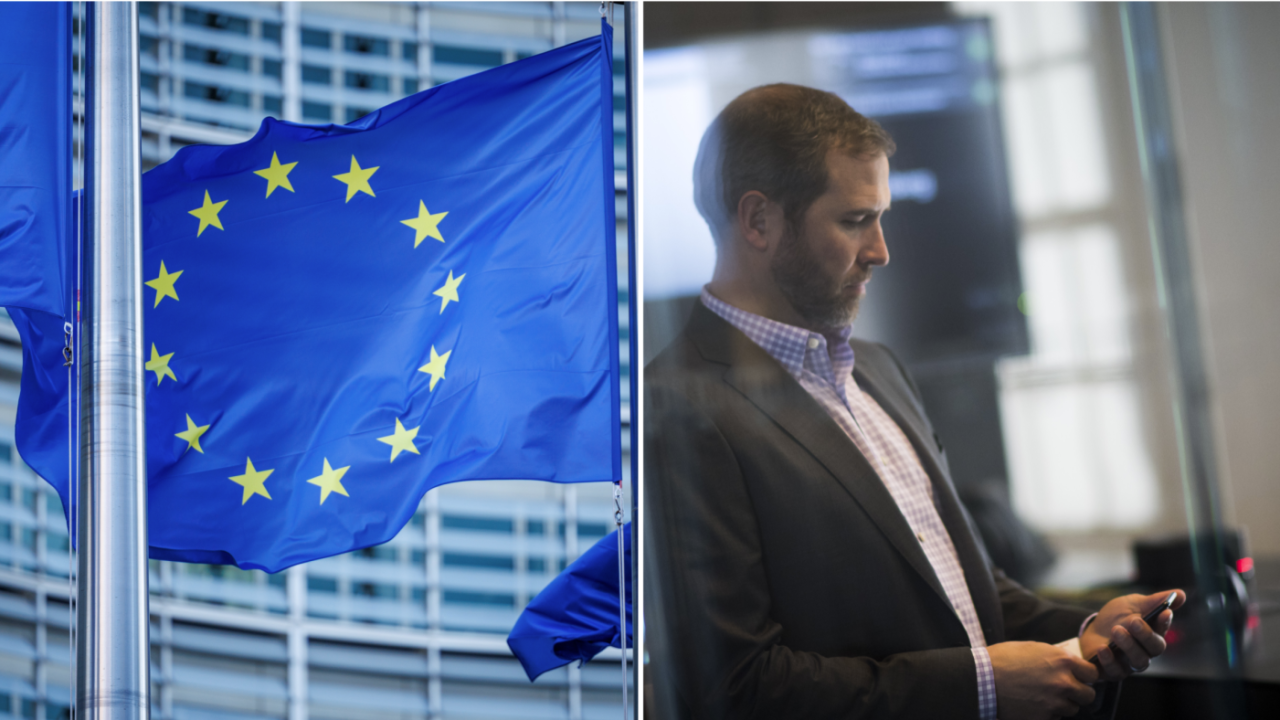The European Union is discussing the exclusion of seven Russian banks from the Swift financial messaging system, but the proposed list spares the nation’s biggest lender and a bank part-owned by the Russian gas giant Gazprom.
VTB Bank and Bank Rossiya are among the banks that would face a ban from the messaging system that enables trillions of dollars worth of transactions around the world, according to a draft list of the proposal seen by Bloomberg. The list is being discussed by EU government envoys in Brussels on Tuesday and is subject to changes before its official release.
The absence of Sberbank and Gazprombank from the proposal shows the continuing level of concern over the economic consequences for Europe from financially isolating Russia. Cutting Russia off Swift had long been seen as a no-go for several European countries before Vladimir Putin ordered an invasion of Ukraine due to the potential damage it could inflict on their own economies, some of which rely heavily on Russian energy. Germany in particular has had reservations.

The other institutions included on the EU list are Bank Otkritie, Novikombank, Promsvyazbank, Sovcombank and VEB.RF, according to the draft.
A spokesperson for the European Commission, the EU’s executive arm, declined to comment on the list.
The decision to boot some Russian banks off the Swift messaging system was announced over the weekend in a joint statement by the Commission, U.S., France, Germany, Italy, U.K. and Canada. That statement didn’t name the banks that would be affected.
A senior U.S. administration official said Monday there is a list of banks on which both Europe and the U.S. agree should be cut from Swift and that these will be considered first. Additional listings can also be added later, a diplomat in Brussels said.
Exclusion implications
Sberbank has twice as many assets as any other bank in Russia, the world’s largest energy exporter. It holds around half of the country’s deposits, with more than 100 million retail clients. Gazprombank is a key bank for Russia’s energy conglomerates.
Swift, which delivers secure messages among more than 11,000 financial institutions and companies, is central to the global financial system and an inability to access it could cause significant economic damage. Russia has developed its own financial messaging system, but it has fewer than 400 financial institutions and few foreign firms.
Swift, based in Belgium, said that while it is a neutral global cooperative with members in 200 countries, it’s obliged to comply with EU and Belgian regulations. “We will disconnect them once we receive legal instruction to do so,” the organization said in a statement Tuesday.
The U.K. was one of the main drivers to ban several Russian banks from using Swift and has called for a total ban for Russia. The EU and U.S. have been working on ways to mitigate the impact on energy-related transactions.
The state-controlled VTB is Russia’s second-largest bank, holding about a fifth of the system’s assets. The U.S. last week announced it will impose its strictest sanctions on the lender, banning U.S. entities from any transactions with it.
The U.S. also targeted Sovcombank, Otkritie and Novikombank, while Sberbank faces less severe restrictions. State-run development lender VEB.RF and Promsvyazbank, a bank for the defense industry, were also sanctioned by the U.S. last week.
Bank Rossiya, which is controlled by longtime allies of President Vladimir Putin, was hit with U.S. sanctions in 2014.
— With assistance from Jennifer Jacobs and Nicholas Comfort.





